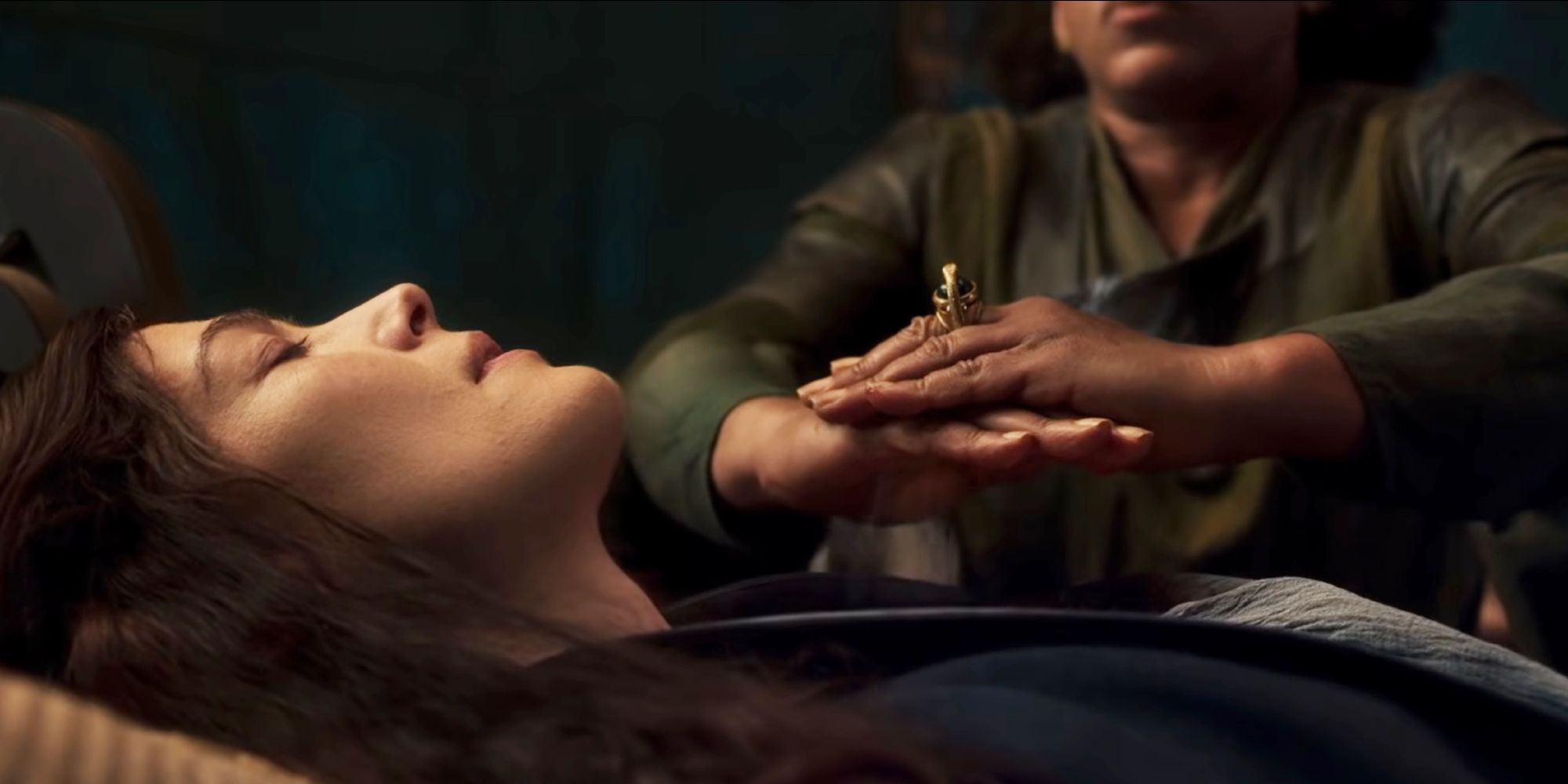Fans of the upcoming Amazon series The Wheel of Time can expect the fantasy world's mythology to be influenced by Eastern philosophies.
Find the Metaverse hosted a Q&A with the cast and showrunner of the series, during which the inspirations for The Wheel of Time's mythology and story were raised. Showrunner Rafe Judkins discussed the progressive nature of the series, saying, "It's interesting because when the books came out in the early '90s, there were so many things that were revolutionary about them at the time. It was the first series to have a big ensemble cast with different POV characters that you go into their chapters; it was the first fantasy book series where half the cast was women."
What compelled Judkins most about the series was its taking influence from Eastern philosophies, with a particular emphasis on concepts such as reincarnation and balance. "I think the thing for me that's really interesting, and really drew me to doing the adaptation of the series now, was that The Wheel of Time is really more inspired by Hinduism and Buddhism and these Eastern philosophies," he said. "So in our world, reincarnation exists, and the ultimate goal is not for good to defeat evil, it's to restore balance to this world that's out of balance. I think the world around us right now is fairly polarized, and to have a show that is talking about what it means to find balance, I think is super relevant to the time right now."
The reincarnation aspect that Judkins alludes to is known in the series as the Dragon. Not to be confused with the mythical flying lizards, the Dragon in The Wheel of Time is a human soul destined to be reincarnated. The Dragon is fated to be a significant player in the battle against the Dark One, during which balance should be restored to the world. However, a previous Dragon is also the reason for the imbalance to begin with. As another nod to Eastern mythology, the Dragon Banner, or the banner of Lews Therin Telamon, depicts a serpentine Eastern style of dragon.
The Wheel of Time is based on the epic fantasy book series by Robert Jordan (and later Brandon Sanderson) that began publication in 1990. The series stood out from other fantasy stories at the time by experimenting with new approaches to the genre. Rather than eliminating the forces of darkness like in The Lord of the Rings, the story was about realizing the necessity of balance and how the forces of "good" could generate equal harm. Its Hindu and Buddhist influences also distinguish it from other fantasy series like The Chronicles of Narnia, which took heavy inspiration from Christian theology.
Season 1 of The Wheel of Time will premiere on Nov. 19 exclusively on Amazon Prime Video. The series received an early Season 2 renewal in May of this year and went into production for the second season in July.
Source: Find the Metaverse

